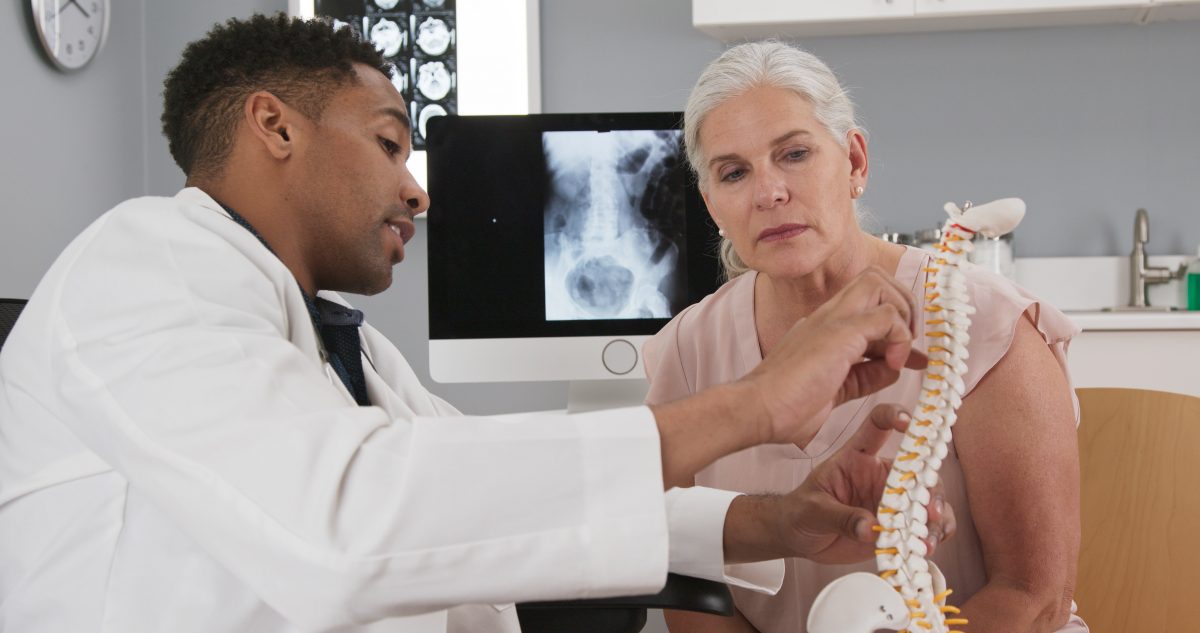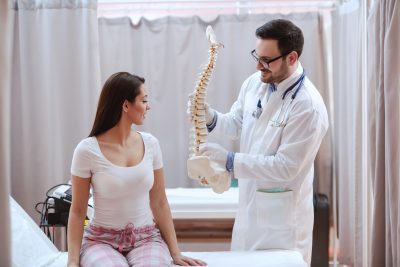The spine plays a major role in most of your body’s functions. To have a proper posture, you need a healthy and well-aligned spinal column. To sit and stand properly, you need a strong backbone. Furthermore, it enables you to bend and twist, allowing flexible movements. Lastly, your spinal cord also enables the transfer of messages from your body parts toward your brain.
With an injured spine, you may find it hard to move. You’d feel numb, or even be paralyzed. In most cases, your body would show signs of deteriorating backbone health. Suppose you’re not familiar with these indications. In that case, here are the warning signs telling you when it’s time to go to a spine specialist such as a well known Dallas Spine Surgeon. Read on:
- Acute And Chronic Back Pain
Pain is your body’s signal that something’s wrong in your system, bones, or muscles. In the context of spine health, acute back pain refers to the short-lasting, stabbing, stinging, and tingling sensation. This pain generally takes a few days or weeks before subsiding. Yet, some people experiencing acute pain could continue their usual body functions despite the struggle.

On the other hand, chronic back pain refers to weeks- or months-long condition. Typically, this happens more than 12 weeks and focuses on the lower back. While the two types of pain differ depending on the person, you shouldn’t rule out that severe pain problems could start with minor acute back pains that have developed into more serious conditions.
Along these lines, you should be aware of the pain and its symptoms. In addition, you should think about the risk factors that affect back pain development, including:
- Age: It starts in the range of 30-50 years old. The older a person is, the more they’re susceptible to back pain because of weakening bones and muscles.
- Body mass: Apart from age, the risk of having back pain increases when people have more weight than what their bodies could hold.
- General health condition: People with weak abdominal and back muscles have a higher chance of hurting their backbone.
- Susceptibility to pain and injury: Athletes and people who often engage in very active physical activities have increased odds of back problems
- Backpack overload: Some children suffer from back pains because of carrying heavier backpacks than their bodies can take.
- Smoking: A cigarette’s harmful components degenerate back discs that could incite and aggravate pain condition.
Excruciating pain doesn’t always equate to the severity of the problem. Hence, it’s always suggested to have a proper pain assessment to have an accurate diagnosis. You may go to legitimate spine specialists for better findings, such as Dickinson Neurological Surgery.
- Lower Limb Pain And Numbness
Persistent leg and feet numbness and weakness are clear indicators of spinal problems in most cases. Often, a herniated disc pressures a nerve, affecting leg control and sensations. Typically, lower limb numbness is accompanied by the tingling of feet and hands. In addition, persons experiencing this condition have weakened muscles, restricted reflexes, and decreased coordination.
In some cases, a pinched nerve, otherwise known as cervical radiculopathy, may cause this condition. In this condition, the cervical vertebrae are compressed, leading to the damages of the nerve roots, causing considerable pain. Generally, a cervical spine CT scan could be helpful if the symptoms persist for weeks.
- Bowel And Bladder Issues And Dysfunction
Emptying your bowel or bladder too often may also be a sign of a spinal issue. Commonly, irritable bowel syndrome (IBS) is a condition associated with such problems. In most cases, the nerve damages in the backbone cause the issues. The disease also causes cramps and uncontrolled bowel movements.
In addition, nerve damages can also affect a person’s digestion and abdominal sensation. The number this area is, the more likely the spinal cord is damaged. Yet, the best to do is to go to a spine doctor for an appropriate checkup.
- Weight Loss
Losing weight is typical when working out for consecutive days and weeks. Yet, when this training results in an extremely painful back, the workout should be stopped instantly. You could ask a fitness coach for this matter, whether or not to continue your exercises or choose a less strenuous design.
Also, this problem is caused by inadequate nutrition that leads to low bone density, leading to severe problems. So, to have a healthy backbone, people should eat calcium-rich food, such as dairy products, green leafy vegetables, sardines, and fortified bread for better bone health.
Suppose you have bone and back problems. In that case, you may need to be aware that imbalanced meals could cause troubles in your spinal column. Apart from this, other diseases, such as cancer, may affect your condition and make you lose more weight than expected. Perhaps, the biggest red flag in this section is when a person’s back persistently aches even if they engage in limited physical activities.
- Restricted Movement
Restriction in movement is usually caused by pain, numbness, and other sensations. Collectively, these conditions prevent people from moving as much as they want. They could find it hard to twist sideways or bend over. Further movements may cause extreme pain. Movements may be even limited to slow standing, sitting, bending, and twisting of bodies.
As a result, people tend to lie down, which, in most cases, aggravates the condition. In some cases, people could move or walk for some minutes, and experience the pain for some time. When these happen and recur, going to a spine specialist is, still, the wisest decision to make. A Jacksonville Beach, FL chiropractor can assess the underlying causes of restricted movement, create a personalized treatment plan, and use targeted techniques to help relieve pain, restore mobility, and improve overall function.
- Extreme Pressure In The Neck And Head
If you feel a heavy pressure in your neck, nape, and at the back of your head, chances are you have a severe backbone problem. Typically, you may feel this for quite a while. Commonly, pressure is caused by stretched or damaged nerves at the different parts of the back and head.
- Impaired Breathing
If you’ve been into an accident or injury, and you find it difficult to breathe naturally, you may need a doctor to take a look at your injury. Aside from breathing difficulty, you may experience remote pain and bone problems that may be indirectly associated.
First Aid Treatment For Possible Spinal Injury
If you suspect a person injured their backbone, you may take the following actions:
- Get help through 911 or another emergency services hotline, especially if it’s related to auto accidents and falls.
- Refrain from moving the person’s head, neck, and back.
- If the person is choking or vomiting, avoid rolling them.
- If the medical help takes too long to arrive, you may use pillows or clothes to cushion the backbone.
Wrapping Up
If you’ve experienced the signs mentioned in this article, the most acceptable decision is to go to a backbone doctor. A spine specialist could be the perfect person that can diagnose a particular spinal problem. Yet, if you’d choose to visit one, you need to consider some points before getting into a specialist’s clinic.
Does the doctor have an outstanding career as a spine specialist? Does the clinic have equipment and instruments for diagnosis, treatment, and surgery? Answering these questions could help you determine which specialist could deliver the best results fit for your backbone health.
